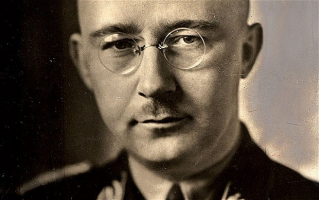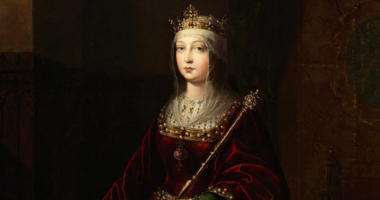Top 8 Interesting Facts about Alauddin Khilji
Alauddin Khalj, also known as Alauddin Khilji or Alauddin Ghilji, was a Turco-Afghan monarch who ruled over the Delhi Sultanate in the Indian subcontinent. ... read more...India’s history would be incomplete without considering his contributions. Here are the most interesting facts about Alauddin Khalj.
-
Alauddin Khilji lost both of his parents when he was very young. He was born in West Bengal's Birbhum area. When his parents passed away, he became the son-in-law/nephew of Jalaluddin, the First Sultan of the Khilji dynasty, who was responsible for raising Alauddin and his three brothers.
Jalal-ud-din, who was originally known as Firuz, began his career as a Mamluk dynasty official and later attained prominence under Sultan Muizzuddin Qaiqabad. A gang of nobles attempted to assassinate Jalal-ud-din when Qaiqabad became crippled and named his young son Shamsuddin Kayumars as the new Sultan. As a substitute, Jalal-ud-din had them killed and took over as regent. He overthrew Kayumars a few months later, becoming the new Sultan.
When Jalaluddin became the Sultan of Delhi, he nominated Alauddin as Amir-i-Tuzuk (Master of ceremonies) and his younger brother Almas Beg as Akhur-beg (Master of the Horse). His uncle gave him important positions in his government, but in return, he paid with his life and the loss of his kingdom because Alauddin Khilji treacherously murdered him and ascend the throne in 1296 CE.
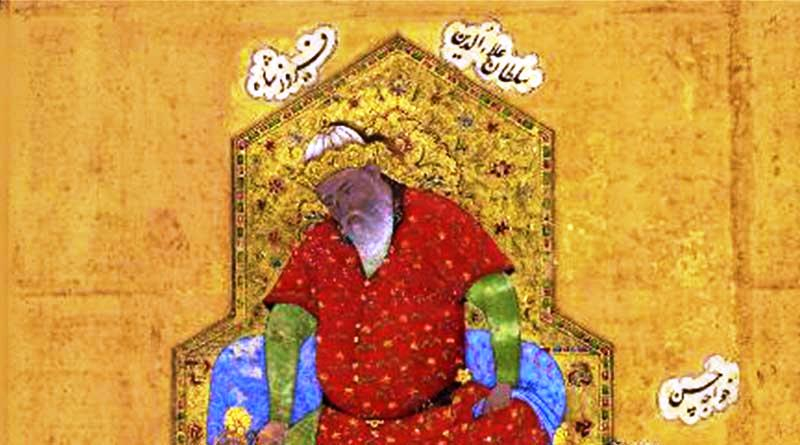
Photo: Stars Unfolded 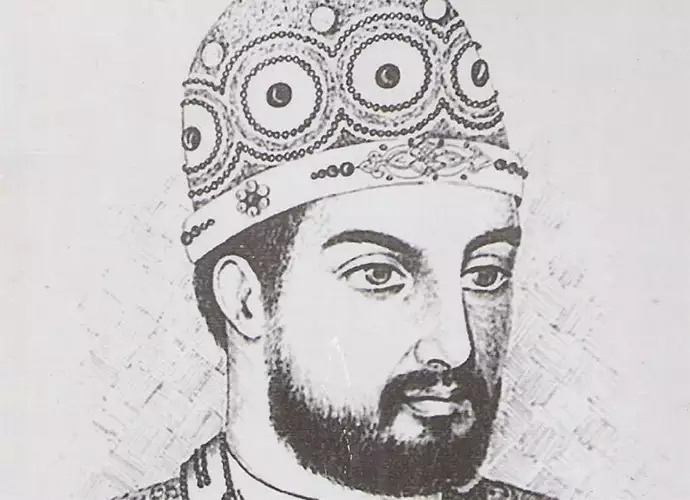
Photo: Times of India -
One of the interesting facts about Alauddin Khilji is that he married his cousin, the daughter of Jalaluddin - Malika-I-Jahan. Her mother, Malika-i-Jahan, was Jalaluddin's principal spouse. She was a very ambitious and haughty woman who had a lot of power over the Sultan. However, the couple was not happy. Malika was well known for her arrogance and took pride in being the Sultan's daughter. That's one of the reasons why Alauddin neglected her and decided to get married to his second wife, Mahru. As a result, it worsened his relationship with Malika.
Alauddin Khilji broke up with the princess after she made an effort to rule him and openly displayed resentment and hatred towards Mahru, his second wife. Malika-i-Jahan once attacked Mahru while he and Alauddin were in a garden together. Alauddin attacked her after losing his temper. Jalaluddin was informed of the occurrence, but the Sultan took no action against Alauddin. He eventually had four marriages.
Alauddin was also not satisfied with his mother-in-law, who convinced Jalaluddin that Alauddin wanted to establish an independent kingdom in a distant region of the nation. Alauddin didn't file a complaint against his wife because he was afraid of her influence over the Sultan.
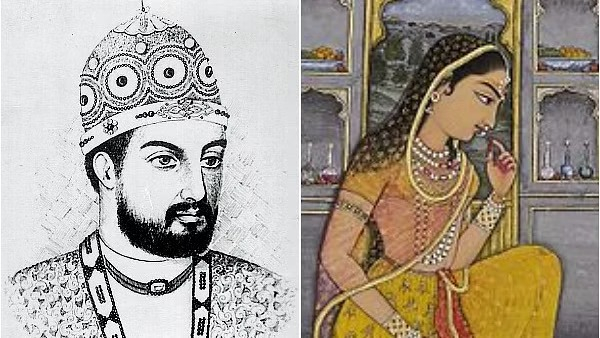
Photo: Swarajya 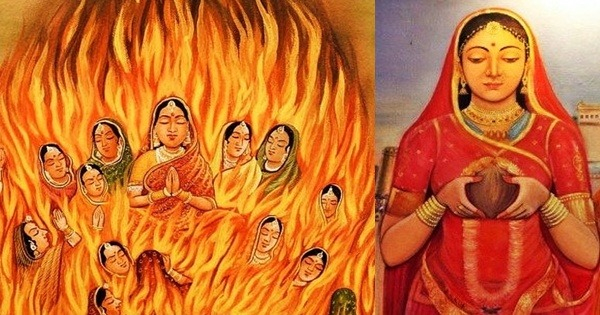
Photo: Trend Pickle -
In 1292, Sultan Jalal-ud-din Khalji, his uncle and father-in-law, appointed Alauddin Khilji governor of Kara after he made a great contribution in crushing a revolt by the governor of Kara Malik Chajju. Kara is a historic hamlet that is located close to Sirathu on the banks of the Ganges, 69 kilometers (43 miles) west of the city of Prayagraj. Under the authority of the Delhi Sultanate and the Jaunpur Sultanate, it served as the capital of a relatively large region for centuries.
Three years later, he invaded Malwa, took control of the prosperous trade hub of Bhilsa, and devised an invasion strategy to steal the sultanate. He conquered the Hindu monarch of Devagiri in 1296 and was the first Muslim invader to cross the Vindhya Mountains into the Deccan, taking with him a treasure containing 17,250 pounds of gold, 200 pounds of pearls, and 28,250 pounds of silver.
With his new position, Alauddin Khilji was in direct contact with those who would persuade Alauddin to steal the throne. Alauddin was renowned for his lust for power and had aspirations of succeeding Sikander (the Persian rendition of the name of Alexander the Great). This, along with his dissatisfying domestic life, led Alauddin to become motivated to overthrow Jalaluddin.
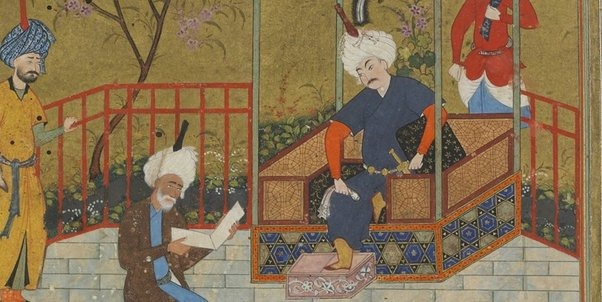
Photo: Quora Source: Oneindia Hindi -
One of the most famous and interesting facts about Alauddin Khilji is that He murdered his uncle and took over the throne. He fled Devagiri with a vast quantity of wealth after successfully conquering the city in 1296, including valuable metals, gems, silk goods, elephants, horses, and slaves. When Jalaluddin heard of Alauddin's victory, he traveled to Gwalior in the hopes that Alauddin would give him the booty there. Alauddin, however, marched with all the wealth straight to Kara.
Ahmad Chap, one of Jalaluddin's advisers, suggested intercepting Alauddin at Chanderi, but Jalaluddin trusted his nephew. In the hope that Alauddin would bring the wealth from Kara to Delhi, he left and headed back to Delhi. After arriving in Kara, Alauddin wrote the Sultan a letter of apology and expressed regret for any offense his opponents may have caused while he was away. He asked for a letter of pardon from the Sultan, which the Sultan sent right away by messengers. Messengers sent by Jalaluddin to Kara learned of Alauddin's military prowess and his preparations to overthrow the Sultan. Alauddin, however, held them and forbade them from contacting the Sultan.
Almas Beg, Alauddin's younger brother, persuaded Jalaluddin to travel to Kara to meet with him, claiming that Alauddin would commit suicide if the Sultan did not personally pardon him. The naive Jalaluddin led his forces into Kara. When he got close to Kara, he told Ahmad Chap to send his main force there by land while he, with with a smaller contingent of about 1,000 warriors, chose to cross the Ganges river. After feigning to greet the Sultan on July 20, 1296, Alauddin had Jalaluddin assassinated and proclaimed himself the new ruler.
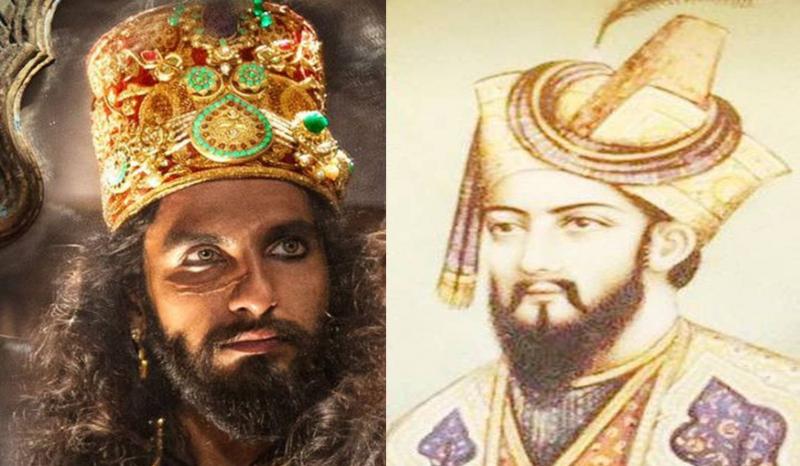
Photo: Pep newz 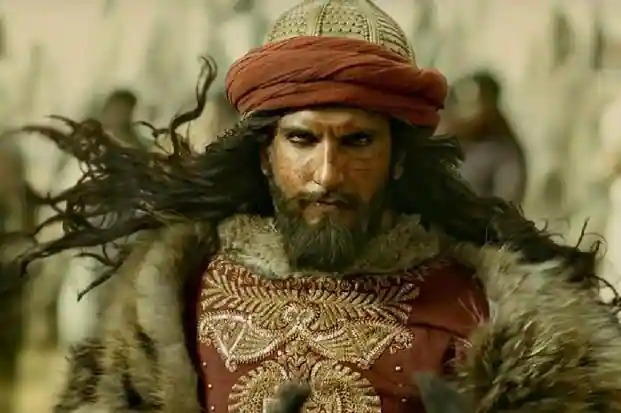
Photo: Mint -
One of the most interesting facts about Alauddin Khilji is marked by his comprehensive reforms. Despite the criticisms that Alauddin was a barbarian, he was successful in implementing important military and agricultural improvements for the country. The agrarian economy of the kingdom was based on the peasant and farmer communities, therefore this was especially beneficial to them. He also changed the tax system, essentially freeing the farmers from the control of the Zamindars, who serve as their landlords. He also decided to outlaw gambling, drinking, and using drugs.
Alauddin implemented extensive reforms, in contrast to the previous Delhi Sultanate rulers who had mostly depended on the pre-existing administrative structure. He adopted various reforms to be able to maintain a sizable army and to weaken those capable of staging a revolt against him after dealing with the Mongol invasions and several uprisings.
For a wide range of market items, Alauddin employed price control mechanisms. Alauddin hired market watchers and spies and got unbiased reports from them to make sure the commodities were sold at set pricing. His administration built government-run granaries where the government's part of the grain was stored in order to prevent the development of a black market. Peasants and traders were also forbidden from storing the grains there. In order to facilitate the quick transportation of grain to Delhi, the government also required the transport workers to relocate to villages along the Yamuna river at particular distances.
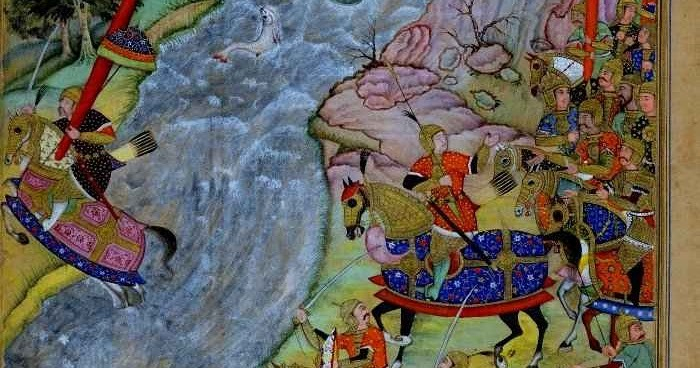
Photo: History for exam 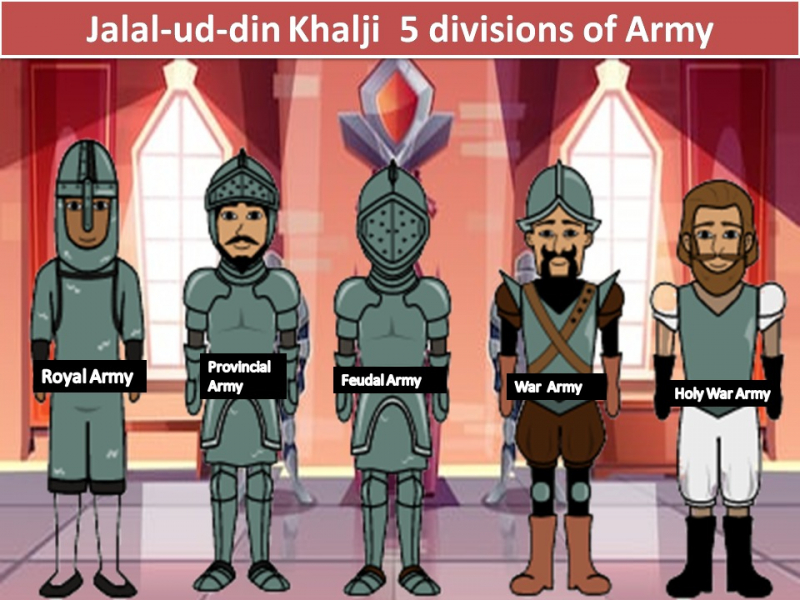
The military reform made by Alauddin Khilji (Pinterest) -
Alauddin Khilji was regarded as the Khilji Dynasty's most powerful leader throughout its 30-year rule. Alauddin would rule for twenty of these years from his seat in the Delhi Sultanate, from 1296 to 1316. When he was at the height of his authority, Alauddin's armies ruled over large areas of Afghanistan, Bihar, Kashmir, and Karnataka.
Alauddin waged wars nonstop for 15 years. Gujarat, Ranthambhor, Chitor, and Rajasthan, western Hindu kingdoms, had fallen by 1303. He stopped the Mongols' progress into India during the course of the following three years and brought calm to India's northwest frontier. He conquered central India in 1305, bringing Malwa, Ujjain, Chanderi, and Mandawar under his rule. He made another assault at Devagiri two years later, and by 1309 his army had arrived at Cape Comiron, which is the southernmost point of India.
Alauddin Khilji was Delhi's richest sultan in history by 1311! He even issued coins with his name as Alexander II on them as he came up with the idea of founding a new religion and conquering the entire world. However, his advisors convinced him against going after such self-glorification.
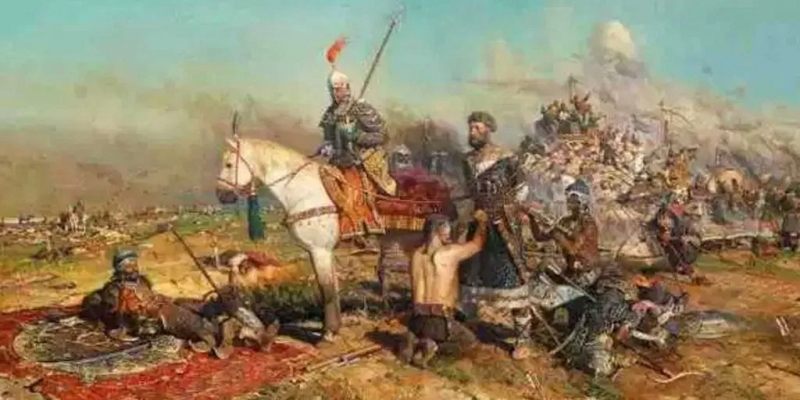
Photo: Wordpress 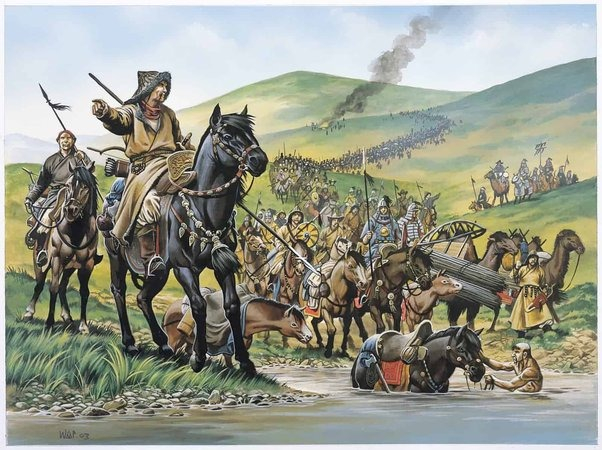
Photo: Quora -
The most interesting fact about Alauddin Khilji is that he helped India fight against the Mongol empire. The Khilji dynasty was not only renowned for its ferocity and irreligion; they were also essential in protecting India against Mongol incursions. India succeeded particularly under Alauddin's leadership. Because the Mongols were divided into various tribes and invaded the empire in various locations, the war was complicated.
However, Alauddin Khilji was able to stop it by employing his military prowess and ferocity, protecting the Indian people and their way of life from foreign invaders. Khilji was able to defeat the Mongols not once, not twice, but five times. He also avoided losing a sixth time, despite being caught off guard as the Mongols launched a ferocious onslaught.
The first invasion effort, which encompassed 100,000 horsemen, took place in 1298 CE. In addition to completely defeating the Mongols, Alauddin dispatched an army under the command of his brother Ulugh Khan and the general Zafar Khan. This army also captured 20,000 prisoners who were later executed. The Mongols invaded once more in 1299 CE, this time in Sindh, and took control of the fort of Sivastan. In order to overcome them and retake the fort, Alauddin sent Zafar Khan, who succeeded even without the use of siege equipment.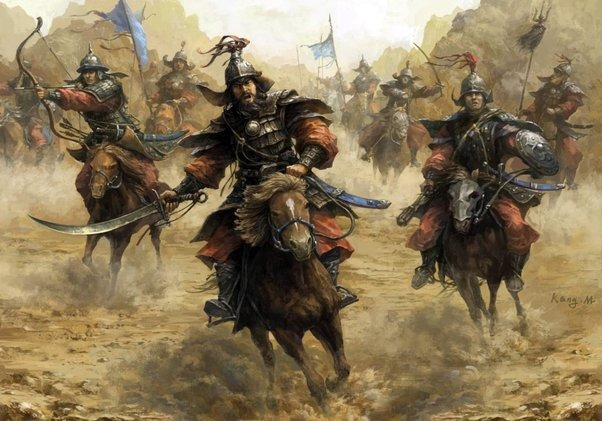
Photo: Quora Source: Historia Maxima -
Alauddin was very distrustful of his officers during the last years of his life as a result of his illness. He began to place all of his family's and his slaves' authority in their hands. He developed a romantic interest in his slave-general Malik Kafur, who was elevated to the position of viceroy (Na'ib) and afterward became the de facto ruler of the Sultanate.
In addition, Alauddin Khilji dismissed a number of seasoned officials, removed the position of wazir (prime minister), and even put the minister Sharaf Qa'ini to death. It seems that Malik Kafur persuaded Alauddin to carry out this purge because he saw these officers as his rivals and a threat. Khizr Khan and Shadi Khan, Alauddin's two oldest sons, were both blinded by Kafur. Additionally, he persuaded Alauddin to give the order to assassinate Alp Khan, a powerful noble who could challenge Malik Kafur's authority. The victims apparently planned a plot to depose Alauddin, although this could just be Kafur's spin.
Alauddin passed away on the evening of January 4, 1316. At the end of the night, Kafur took Alauddin's body from Siri Place and had it interred in his tomb, which had already been constructed when Alauddin passed away. Although neither of these buildings can be verified, it is believed that the tomb was situated outside of a Jama Mosque.
Source: Praveen Dabas 
Source: India times


























